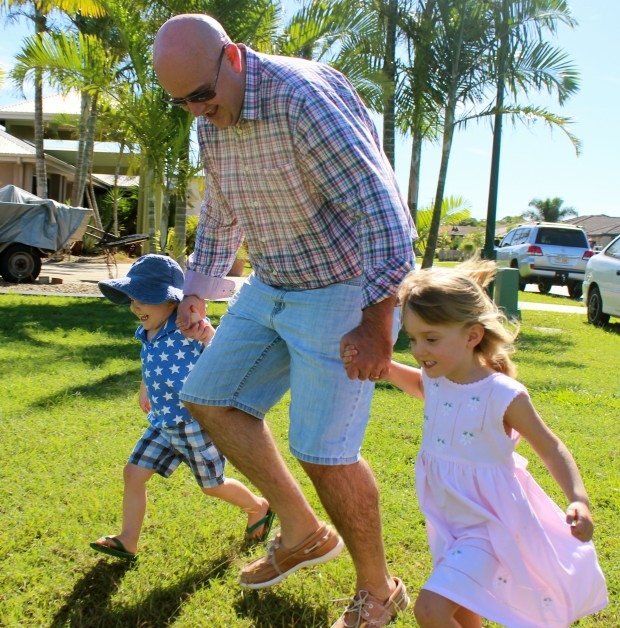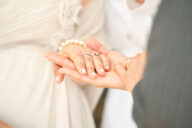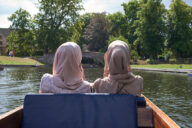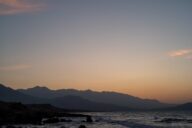Fatherhood for me began 22 years ago at the age of 33. Our first child, a beauty-full daughter, was born at home on a Wednesday around 8:30pm. At the time I could feel that this was a divine moment, one that I would never have experienced without choosing to have children.
I clearly remember how completely hopeless I felt when the midwives and nurses left our house – I had never taken care of a baby before in my life. That night I had to change her nappy and I felt how fragile and helpless she was; and I felt my own uncertainty about what to do.
From that night on I also began to identify myself with my new role of ‘father’, but failed to feel what the true meaning of this was for me. Instead, I just did what I felt was expected of me to qualify as a ‘good father’. As our child grew up I tried to form and guide her to suit my ideals of what I felt I needed to make of her.
When I write it like that now I feel how arrogant it was of me, wanting to mould a child to my ideals and beliefs and not let them grow up in their true nature. Is this what we are actually doing when we parent, in contrast to providing a loving connection where a child will be met and seen for who they truly are?
An interesting set of questions now arises:
Where did these ideals and beliefs about being ‘a good father’ come from?
Is it possible they are provided by society (family and friends, school, TV, magazines, books, health professionals, etc), and that I chose to adopt them to be a ‘good father’? I was not consciously aware of the fact that I was using ideals and beliefs at all, let alone considering that they could have been ‘delivered’ to me.
What did I choose from the package of fatherhood ‘pictures’ which were presented to me?
Did I look for a certain type of fatherhood picture I was familiar with or did I select some on purpose, because they suited me the best, in order to not be confronted with the responsibility that comes with feeling and making my own choices?
Why was I looking for a fatherhood picture in the first place?
Could it be that I was looking for recognition and acceptance for being a good father, instead of trusting the love and wisdom within me to be my guide?
Given all of this, was it then possible that:
Everything in society is set up for me to doubt myself and ‘believe’ what I am told, instead of trusting what I know and feel deep inside?
Although I was not aware of it at the time, in my uncertainty of how to be a father I followed a fatherhood picture, taking on ideals and beliefs like…
- As the parent I have to mould my child to make them ‘valuable for society’. If I do not, the child will be lost to society.
- I will be the provider and carer for everything my children need; I will be always there for them.
- I am the parent, therefore superior to the child, the subordinate.
- I have to support them in all that they do, even if it is something I don’t agree with.
- My children are perfect; my children do not behave badly.
- They must have the same ambitions in life as I have.
- I will be the perfect father for my children, they will not want for anything and I will show that to the world.
- I have to be proud of them.
- My children have to listen to me because I am their father.
- I will have an “I know what is good for you” attitude, and so on.
But this makes me wonder:
If all these fatherhood ideals and beliefs are not me, because I have taken them on from outside of me, what then is the real me and the real father in me?
The answer for me has been to slowly unravel all my fatherhood pictures, to become aware of them and discard them, one by one. Through this discarding of what is not me I am becoming more true, more who I really am – which is much, much more than just being a ‘good father’!
This now reflects in my deepening connection with my children – a connection that is based on a true equalness, and a deep trust in myself and in what I feel.
I would like to thank Serge Benhayon and Universal Medicine, whose presentations have inspired me to become a truer father.
By Nico van Haastrecht, father of three, Warnsveld, the Netherlands





